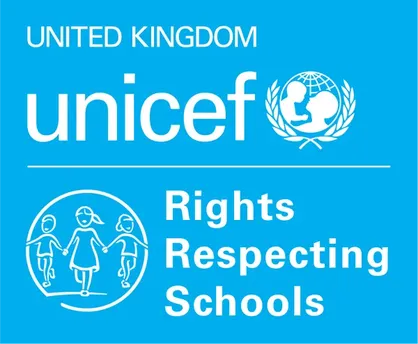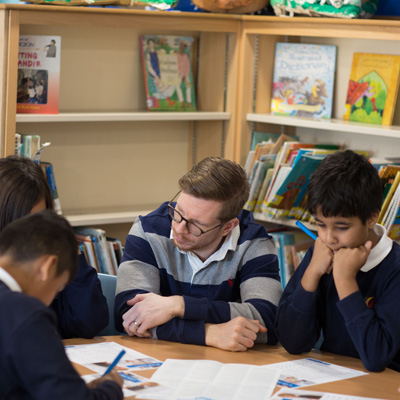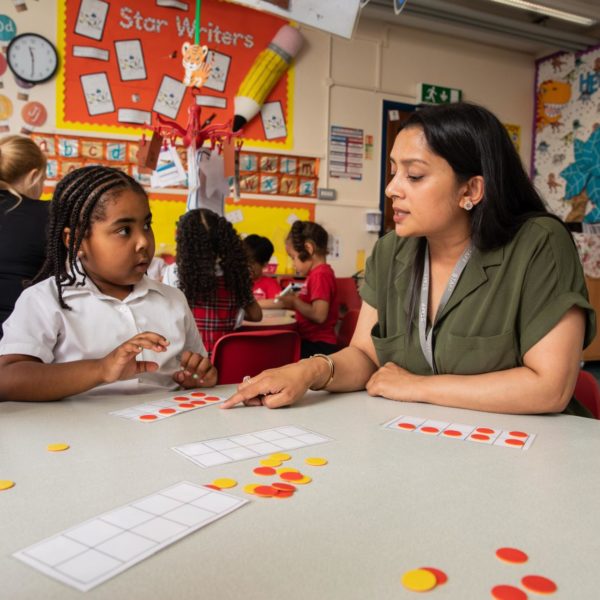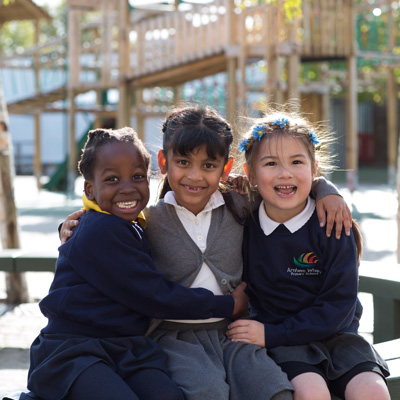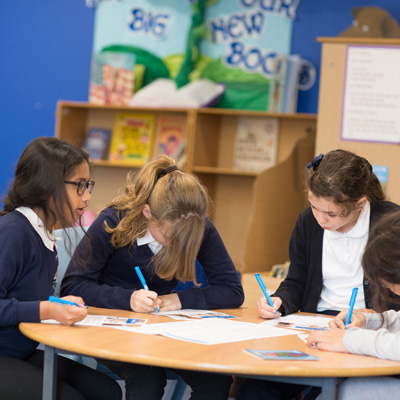Children from across Manchester attend this primary specialist setting, presenting unique challenges in community engagement.
Caroline Gibson is an Assistant Headteacher and Rights Respecting Lead at Bridgelea Primary School which has been reaccredited at Gold.
Building relationships with families in a widespread community
Bridgelea Primary School is a school offering specialist places for children with an Educational Health and Care Plan (EHCP) identifying Social Emotional and Mental Health Difficulties (SEMH). Bridgelea also offers places for Manchester’s children who are at risk of being excluded (APX) or who have been permanently excluded (PEX) by providing the day education offer.
Family involvement is a challenge for us being a city-wide provision. We have a widespread community across Manchester. Engaging families through Class Dojo has transformed practice and parental engagement. Parents are able to see their child completing fun and positive activities in school where they are happy and have friends. We also share Article of the Week and other information from UNICEF UK to our parents on there.
Parents are regularly invited to school for activities to complete with their children, such as forest school, baking, Christmas activities and others. We support them with transport as this is often a barrier to participation for our families. We have employed a pastoral higher level teaching assistant who works hard to engage parents and support them to access resources they need to improve their lives and wellbeing. When we talk about being a Rights Respecting School and how we advocate for our children’s rights, parents feel that we are a child-centered setting where staff care about children and see their child as the wonderful young person they are.
Raising the voice of excluded children
Our staff are the advocates as our children are excluded from schools and often other community opportunities. Rights are important in raising children’s voices in this context. Rights Respecting Schools offers the opportunity to learn about rights and empower pupils to have a voice.
Our school is a part of the Manchester Pupil Parliament. This is a large group of children who advocate for children’s rights. We attend termly and through collaborative working, improve the lives of children in Manchester. Last year we looked at children’s mental health and the year before we developed some ideas for Our Child Friendly Manchester which is Manchester’s journey to becoming UNICEF UK Child Friendly City. The children really enjoy the project and working alongside children from mainstream schools.
Experiences like this are empowering for our children and enable them to be heard. Adults at our school are constantly searching for opportunities for children to access and engage in wider projects. Our children need more scaffolding and support, but once they have their ideas, they are really able to share and advocate!
Rights is part of ‘who we are’
Rights Respecting really underpins our ethos and practice as a school. RRSA is ‘who we are’ now and we are constantly referring to rights when speaking about children and adapting their curriculum offer and provision. RRSA has transformed how we support and understand our children and families. Once you start on the journey and share the ethos and values of Rights Respecting Schools, this soon becomes part of your processes.
School context: Bridgelea is a primary specialist setting for children with EHCP for SEMH in Manchester. There are 108 children on roll. It is a Manchester Local Authority Day 6 provision for primary aged children who are permanently excluded. There are two sites, one for Key Stage One pupils and another for Key Stage Two. All staff are trained in nurture approaches and how to respond to concerning behaviours. Children are taught in classes of up to nine and are supported by up to four adult staff per class.
